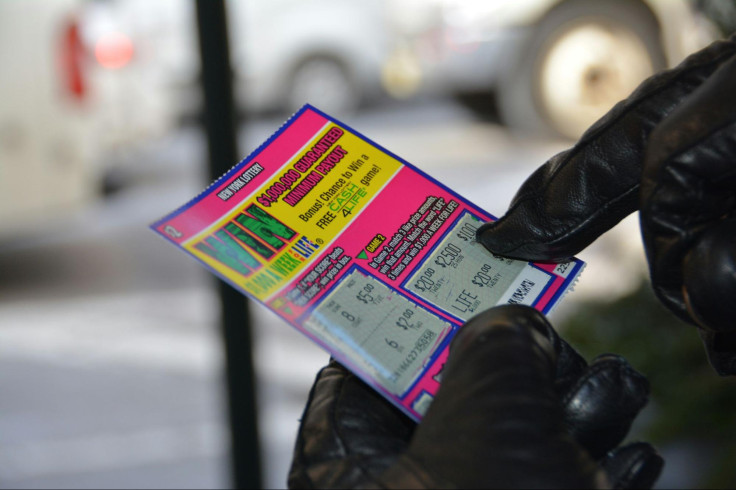Crypto Lotteries Vs. Traditional Lotteries: Which One Should You Choose?
There are two types of lotteries: open and closed

Lotteries are one of the oldest chance games played today. They involve players buying tickets that possess random numbers. To win the lottery, your ticket must have some or all of the number sequence generated by the machine at the close of the lottery.
There are two types of lotteries: open and closed. In an open lottery, tickets are continuously sold, and winners are announced periodically (weekly, bi-weekly, or monthly). In a closed lottery, all tickets are sold before the winner is announced. Crypto lotteries are a new entrant into the lottery space, and they aim to battle for dominance against traditional lotteries. As a lottery enthusiast, which should you choose? Let's compare these two lottery categories.
Crypto Lottery
Crypto lotteries use blockchain technology and digital tokens to create a lottery system. This differs from traditional lotteries as players do not need to buy a physical ticket. The essential workings of this lottery are similar to those of conventional lotteries, but the design was created to take advantage of the benefits of blockchain. Cryptocurrency lotteries can also use application and data layers to create a seamless experience. Below are the pros and cons of playing the crypto lottery.
Pros
- Fairness: The blockchain makes cryptocurrency lotteries fair and transparent. Players can see the total number of tickets on sale, and the numbers are immutable. There is no central control over the tickets, so the winner cannot be manipulated. This makes it easier for players to trust cryptocurrency lotteries because all actions can be verified on-chain.
- Accessibility: The lottery is accessible to all players, and there is no discrimination in the sales. You can access your favourite crypto lottery with your phone and internet connection. This makes it easy for players anywhere in the world to participate in the lottery and expands its scope for players in remote areas.
- Anonymity: Anonymity is a crucial cryptocurrency ethos that is transferred to the lotteries. Other players need to learn the names of the winners or the other participants. You can purchase tickets and claim winnings without revealing your identity or undergoing KYC (Know Your Customer) checks. Blockchain technology allows players to stay anonymous when participating in crypto lottery games.
- Convenience: You do not need a physical ticket to participate in a crypto lottery, and you also do not need to watch designated programs or other events to learn the winning numbers. You can purchase and redeem your lottery tickets from the convenience of your preferred device. You can buy tickets, claim winnings, and spend money with a mobile phone.
Cons
- Network Failures: When blockchain networks get flooded with requests, they are vulnerable to downtimes. Lottery games provide the ideal situation that can trigger downtimes due to crowded requests from players trying to buy tickets. Luckily, some blockchain solutions can help relieve this pressure and allow the lottery to continue uninterrupted.
- Regulatory Uncertainty: Cryptocurrency lives in a regulatory grey area in many regions. This is a huge stumbling block to its growth and development. As regulations change, it may become harder for operators to maintain some of the technology's best benefits, such as anonymity. Therefore, operators and regulators must agree on acceptable standards to allow cryptocurrency lotteries to provide user services.
Traditional Lottery
Traditional lottery games involve players buying tickets to win prizes if their ticket holds a winning combination. Most traditional lotteries are open with announced weekly winners and the jackpot given to the player who gets a ticket with complete matching numbers. As players purchase tickets, the prize pool grows, which leads to the eventual winner receiving millions in payouts. Closed lotteries usually have smaller payouts than open ones, with a start and end date, giving players a timeframe within which they can participate. Here are the pros and cons of traditional lotteries.
Pros
- Community Development: Some traditional lotteries are run by state governments, and the proceeds from these Lotteries are used to fund community development projects and other local developments. This is one of the reasons that traditional Lotteries have survived for this long, as their benefits are felt beyond the individual who claims the grand prize.
- Low Entry Cost: The cost of entry into lotteries is low by design. The aim is to get as many people buying tickets as possible to maximise the chances of winning. At a small price point, players can purchase hundreds of tickets, which go into the prize pool and raise the value of the jackpot.
- Solid Regulations: Traditional lotteries are well-regulated by state and federal governments. They try to limit the influence of private companies and halt any manipulations that may occur. They also ensure that lottery tickets are only sold to players of an adult age, as lotteries are considered gambling and regulated as such.
- Entertainment: lotteries are a form of entertainment for players. The reality of lotteries is that they are a game of chance, and there is a small probability that you will be the lottery winner. Therefore, they are a source of entertainment that occasionally pays out to some users who have bought a ticket.
Cons
- Centralisation: Due to their centralisation, lotteries are prone to manipulation despite the government's best efforts. There have been scandals involving lottery companies where tickets were manipulated so that the winning numbers were not circulating. Although the government actively works to remove bad actors from the space, lottery manipulation is still an active problem. Private companies are made to follow strict regulations that limit their ability to cheat users, which helps maintain trust in the lottery system.
© Copyright IBTimes 2025. All rights reserved.





















